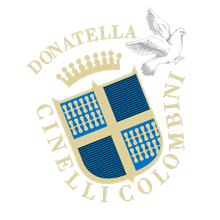The most important wine word today is “autochthonous”
Indigenous, that is the key element in wine according to Matt Kramer editorialist for Wine Spectator
Read for you by Donatella Cinelli Colombini
Since 1985 Kramer writes regularly for the most influential wine magazine in the world and has an analytical ability and a knowledge regarding wines which are extraordinary. Listening to his opinions is consequently a must for those who want to understand where the wind blows for wine. In his article dated June 30th he began with this phrase <<Do you think that at this moment the most important word in wine is “natural”? Or “authentic” Or better still “commercial” None of these. The most important word in wine today is “autochthonous ” (indigenous).>> With his usual understandable explanation he gets across that all that happens in the Vineyard and the cellar is important but not fundamental, not as much as the 3 key elements: microclimate, soil, grape variety. No matter how hard the producer may try to characterize his Cabernet Sauvignon, it will always remain a Cabernet Sauvignon. But, what is the identity or indigenous character as Kramer calls it?
It is the varieties which have taken on specific characters because they have been cultivated for centuries and centuries in the same place <<the wines form autochthonous varieties have an integrity which comes from time and local tradition which precede the pervasive power and the penetration on the market of the globalized brands. To resist is not futile>> To better explain himself Kramer uses mostly Sicily <<The Carricante, Grillo, Insolia, Ansonica and Catarratto>> are the best wines not Chardonnay. <<The Nero d’Avola,
Nerello Mascalese, Nerello Cappuccio and Perricone among the reds, not the brilliant Merlot, Cabernet and Syrah>> … << are they all successful wines? Obviously not. It’s a mixed basket. As is to be expected from something which is really revolutionary. But the originality is surprising and necessary>> Evidently Europe has a net primate for autochthonous varieties but also Malbec of French provenance, after a century of being cultivated in Argentina has acquired specific characters which make it autochthonous like Semillon from the Hunter Valley in Australia introduced in that area in 1830. According to the most widespread concepts in viticulture a hot region would not be apt for cultivating Semillon whereas this variety has adapted to the Hunter Valley and produces wines that are not too alcoholic and decidedly good. So basically Kramer opinion is lapidary. The market is full of well made wines, but nothing is more precious than autochthonous wines because << in the end, they cannot be reproduced>>.For us producers of Brunello (pure Sangiovese) and also for myself, as I have recuperated the variety Foglia Tonda native in southern Tuscany, this is music to our ears!











